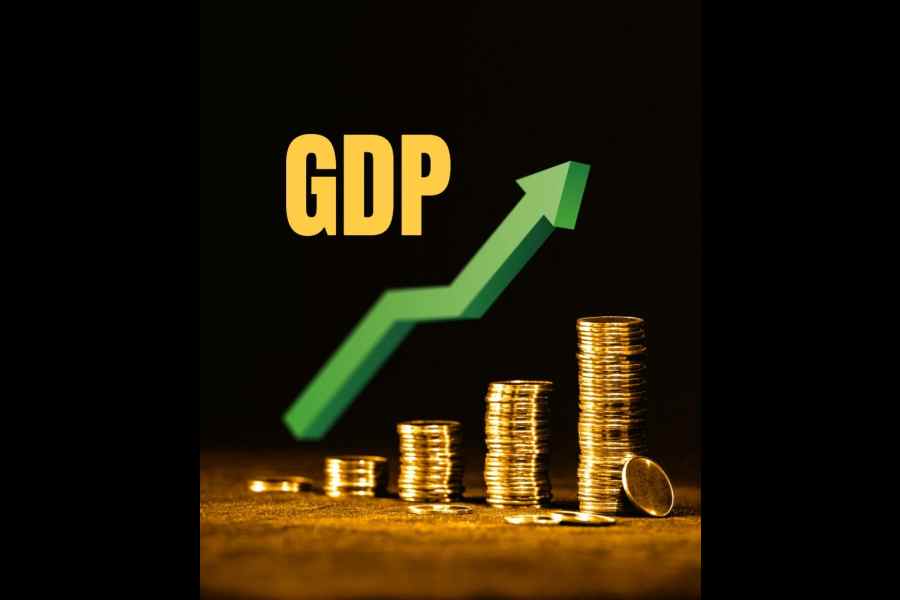China's economy grew at 5.3 per cent in the first quarter, making a stronger-than-expected start to the year even as the downturn of its property market continued while the domestic demand remained subdued.
The GDP grew 5.3 per cent year on year to 29.63 trillion yuan (about USD 4.17 trillion) in the first three months of 2024, data from the National Bureau of Statistics (NBS) showed on Tuesday.
The pace accelerated from 5.2 per cent overall GDP growth for 2023, appearing on course to meet the target set by the government at around five per cent.
On a quarterly basis, the economy expanded by 1.6 per cent in the first three months of this year, according to the NBS.
"China's high-quality development has made new achievements in the first quarter. The national economy has sustained recovery momentum and got off to a good start," Sheng Laiyun, Deputy Head of the NBS, said at a press conference.
Sheng mentioned positive factors during this period, such as rising production demand, stable employment and prices, and growing market confidence.
"These positive factors driving economic recovery are accumulating and strengthening, laying a good foundation for full-year growth," he said.
Sheng also noted that the 5.3 per cent GDP growth was mainly driven by a rebound in the industrial sector and an improvement in the service sector.
He, however, was silent on the continued crisis in the property sector, which accounts for 20 per cent of the world's second-largest economy, according to the International Monetary Fund (IMF).
The home prices fell at a faster pace for more than eight years, according to the latest data.
In the same period, property investment fell 9.5 per cent, highlighting the challenges faced by China's real estate firms.
"You cannot manufacture growth forever, so we really need to see households come to the party if China wants to hit that around five per cent growth target," Harry Murphy Cruise from Moody's Analytics told the BBC.
The real estate industry crisis was highlighted in January when property giant Evergrande was ordered to liquidate by a court in Hong Kong.
China’s other property developers, like Country Garden and Shimao, have also been hit with winding up petitions in the city.
Significantly for the Chinese economy, credit ratings agency Fitch cut its outlook for China last week, citing increasing risks to the country's finances as it faces economic challenges.
On Tuesday, Fitch Ratings lowered its outlook for China’s state-owned banks from stable to negative a week after it cut its projection for the country’s sovereign credit rating, reflecting pessimism in the world’s second-largest economy and concerns over Beijing’s capacity to support its biggest lenders.
The downgrade in the ratings outlook of China’s “big six” state-owned banks, including the Industrial and Commercial Bank of China (ICBC), China Construction Bank (CCB), and Bank of China (BOC), “mirrored the same outlook revision on China,” Fitch wrote in a report published on Tuesday, the Hong Kong-based South China Morning Post reported.
The better-than-expected first-quarter growth was “fuelled by rapid growth in the services sector, as well as increased overseas demand driving export growth in the industrial sector,” Ding Shuang, chief Greater China economist at Standard Chartered Bank, said.
“A major headwind is the potential trade friction in the West, including additional tariffs, especially as the US has recently blamed China for the overcapacity issues. This is posing a challenge to China’s trade sector,” he told the Post.
Except for the headline, this story has not been edited by The Telegraph Online staff and has been published from a syndicated feed.










